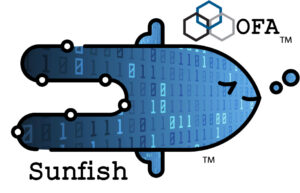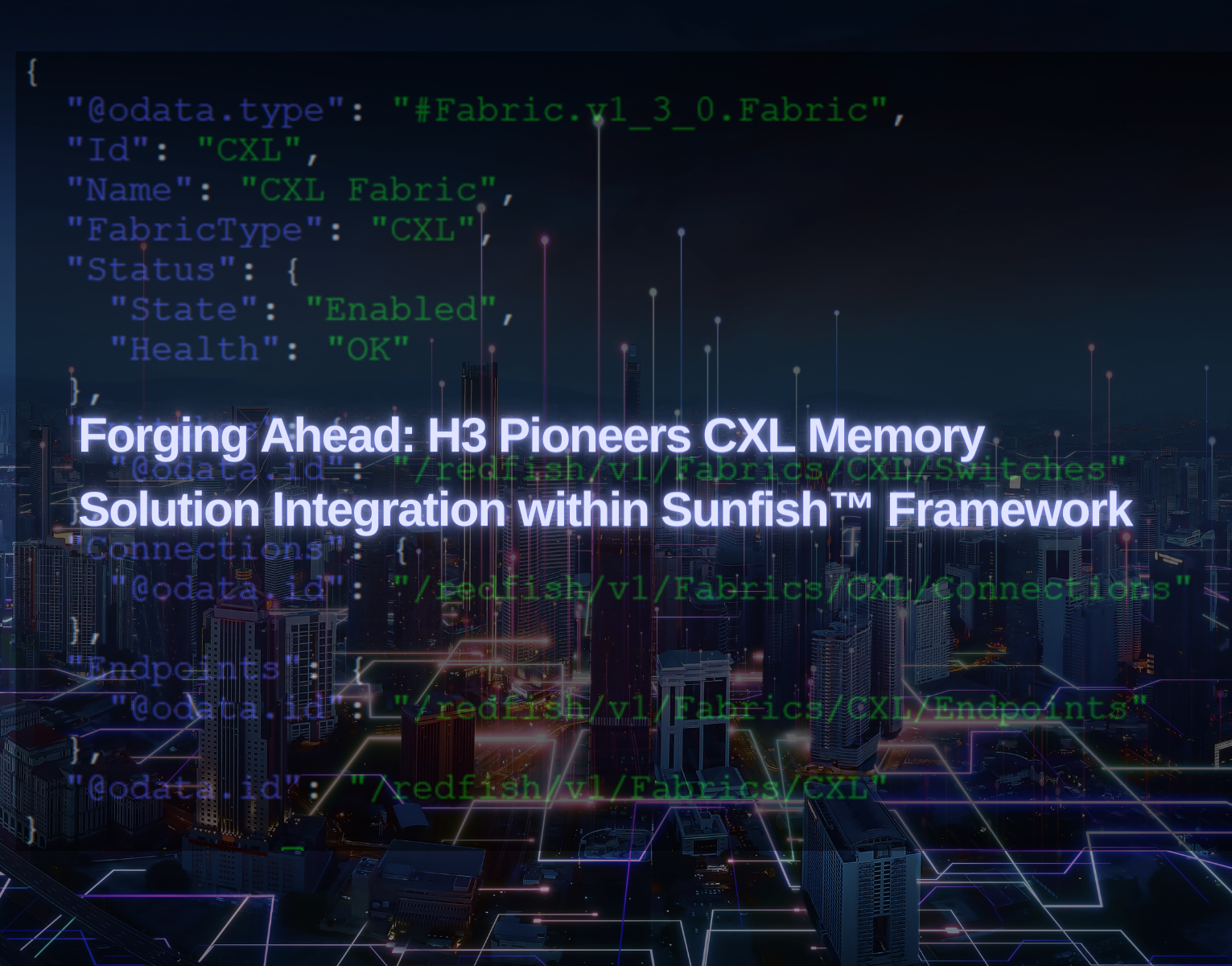Introducing
Sunfish™: Simplifying Composable Distributed Computing
Sunfish™ is an exciting open-source platform
designed to simplify the development of composable distributed disaggregated
computer architectures. It streamlines the interaction with disaggregated
fabrics and computing resources, making it easier for system administrators,
programmers, and architects to manage complex computing infrastructures.

Key Features:
- Virtual Platforms and Clusters: Sunfish
simplifies the creation of virtual platforms and clusters to support
various workloads, facilitating easier configuration and management of
complex computing resources.
- RESTful Interfaces and Tools: With RESTful
interfaces and tools, users, including system administrators, programmers,
and architects, can effortlessly manage tasks related to computing
resources, ensuring a seamless user experience.
- Support for Various System Clients: Sunfish
supports diverse system clients, ranging from Message Passing Interface
applications to Fabric Attached Memory (FAM), workload managers, cloud
managers, IO systems, CPUs, and accelerators, catering to different user
needs.
- Redfish and Swordfish Language Support:
Leveraging Redfish and Swordfish languages, Sunfish enables users to
access telemetry data, allocate components, and configure systems,
providing enhanced flexibility and functionality.
- Vendor-Specific Fabric Support: Sunfish supports
vendor-specific fabrics through custom agents, facilitating VLAN
membership and resource identification within virtual platforms, offering
users more customization options to meet specific computing requirements.
- Seamless Interaction with High-Speed Fabrics:
Sunfish ensures seamless interaction with high-speed fabrics, meeting the
demands of modern computing infrastructures, and providing users with
improved performance and flexibility.
Integration
with CXL 2.0 Memory Pooling Solution:
In our latest development effort, H3 announces
the integration of the CXL 2.0 Memory Pooling Solution into Sunfish. This
integration aims to enable more end users to efficiently utilize memory
resources with the composable resource management system in HPC and cloud
computing operations. Here's a glimpse of our progress so far:
- Sunfish Agent Setup: The Sunfish agent is now
operational, allowing users to leverage the Sunfish API to access detailed
information about CXL devices, switches, and resource configurations.
- Component Information Monitoring: Through API
commands, users can monitor the status of the CXL Fabric, retrieving
crucial data such as its operational status ("enabled") and
health status ("ok (healthy)"). Users can also obtain properties
of switches from the switch collections and access information about the
chassis and switchboard from the chassis collection.

Figure 1: Information Retrieval of the Root Service.

Figure 2: Information Retrieval of the CXL Fabric.

Figure 3: Information Retrieval of Switch Collection

Figure 4: Information Retrieval of Chassis Collection
- Resource allocation: Users can efficiently
allocate CXL memory to specific hosts through the API, ensuring optimized
resource allocation.
Moving forward, we will continue to develop
Chassis management-related functionalities, including LED control (UID and
device LED on/off), Switchboard on/off, and Power on/off. The final feature set
will be tailored to meet the requirements of actual chassis models.
Stay tuned for further updates and enhancements
as H3 continues to evolve and revolutionize the landscape of composable
distributed computing architectures.


